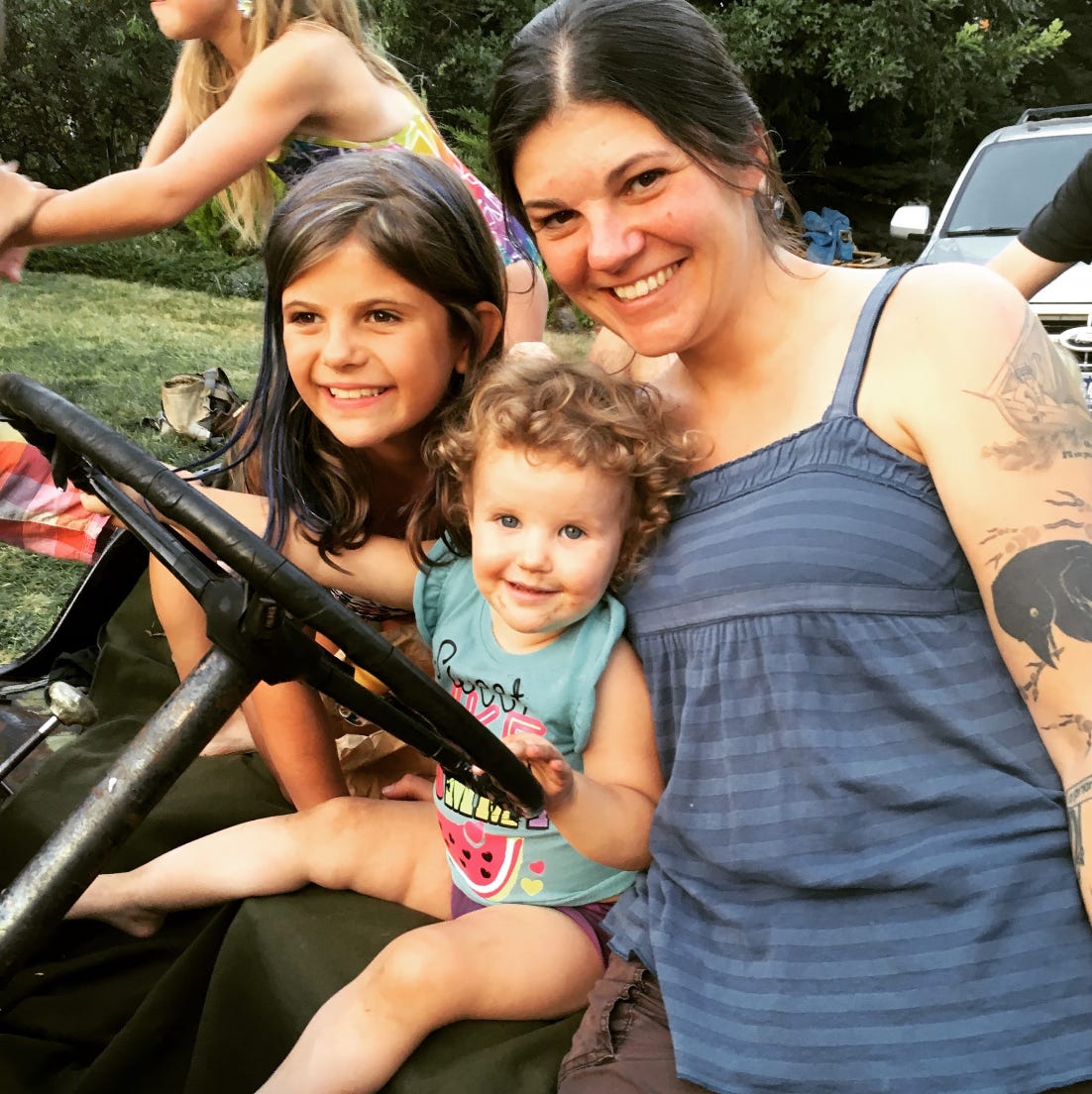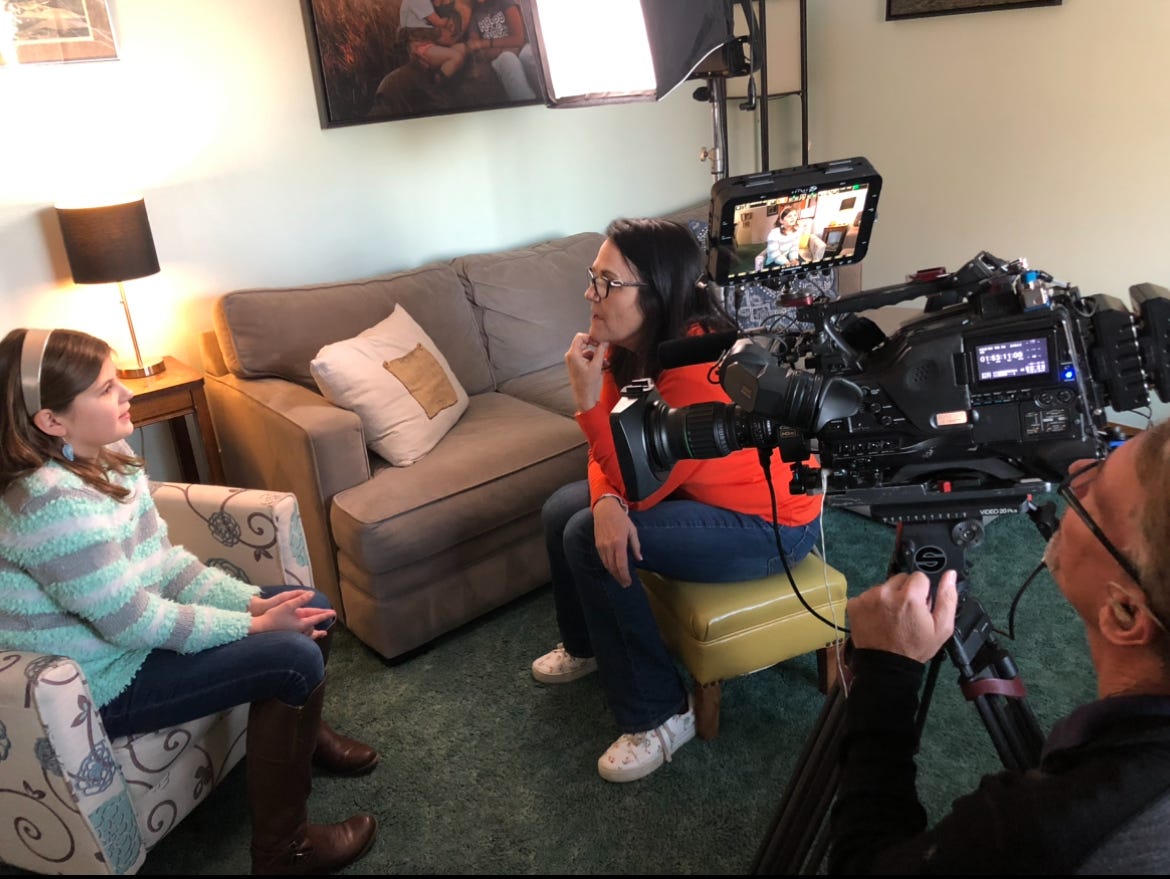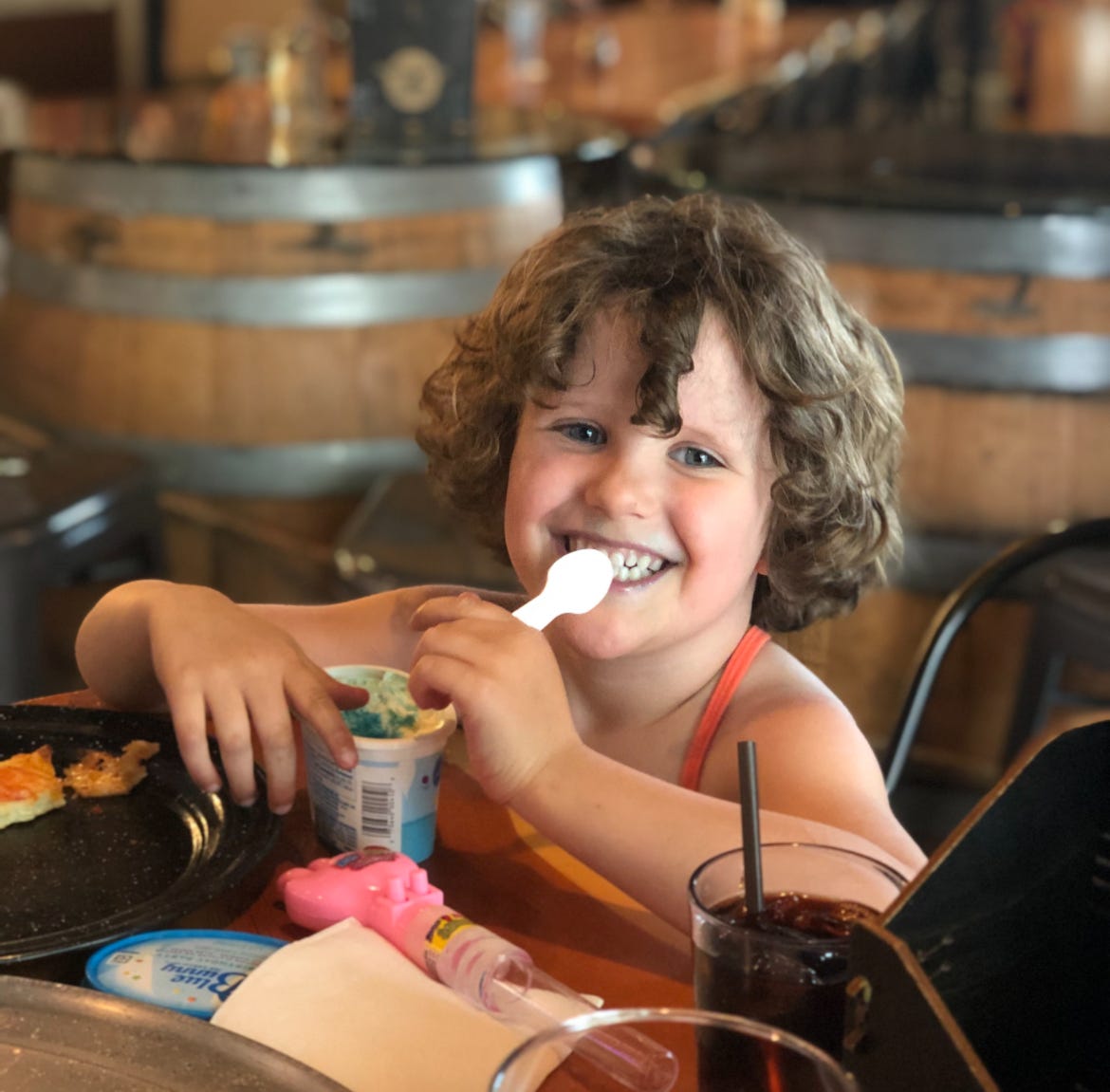"Bad Decisions" and Barbara from Michigan
Facing the fear of sharing my story, because sharing my story is never enough.
Over the summer, a sort of campaign against me began by a writer who used to be a friend of mine. Her motivations for doing this are never truly known. She had personally asked me to join her in hating another woman writer many years ago. Her public hatred toward me began after she read an early copy of my book CLASS “out of spite” and proceeded to post on Facebook and Twitter for several months about how awful it was before leaving a review on Goodreads. People chimed in and agreed with her, and one left a comment that included the words “legitimate concerns about a book positioned to be a best seller.” After I read that, I put my phone down and went to my closet to pick out some clothes. I wanted to take a shower. It was August, but I suddenly needed to take a really hot shower. But when I reached for clothes, I didn’t recognize any of them as mine. My favorite pants and hoodies were so foreign I briefly didn’t know where I was. I sat on the floor, hyperventilating and crying, and didn’t move for nearly six hours.
The “concerns” that labeled me as a neglectful mother were unsurprising, since I’ve heard them so much over the years. I can’t count how many times I published an essay where I shared my struggles of being a poor single mom on food stamps and people in the comment sections told me to put my kids up for adoption. I called my oldest daughter’s school when she was ten because someone had threatened to basically kidnap her and somehow put her up for adoption for me. People posted the photo of us below on websites like 4chan to show what my children looked like, encouraging someone to do it.
Most of what I wrote about as a freelancer—whether it was about cleaning houses, that I used food stamps, or struggled to find child care—inspired a lot of angry comments, posts, and emails. What had upset people this time was that I had published an essay in response to the 2016 election. To me, the essay was about grief and wanting to protect my children by holding them close while mentioning that I didn’t want to date anymore. That last part, of course, created a mudslide of shitty men’s comments, YouTube videos, and forums to list reasons why they wouldn’t date me anyway. Joe Walsh tweeted my essay to make fun of it, and Bill O’Reilly did a segment about me on his show. The death threats, rape threats, and urges to kill myself were constant for more than two weeks. I couldn’t sleep, and feared for my safety, expecting the newly-elected president to tweet about me and include my address or where my child went to school.
I’d just started writing my first book when all of this happened. I grew terrified that all of this would continue through its publication. My editor emailed me and said “The trolls will move on, but your book will start a movement.” I tried really hard to believe that, but every bumper sticker supporting the sexual predator who was about to occupy the White House, every flag hoisted in the bed of a huge pickup truck with his name, in my mind, could have a person who threatened to kidnap my children in the driver’s seat.
As the publication of my book grew closer, the constant panic I felt was similar to the one I had fought to suppress when I wasn’t able to pay the electric bill. That feeling of uncertainty from food and housing insecurity wasn’t that far behind me. I’d only been off of food stamps for three years. On book tour, I lived in fear that one of the people who’d threatened me would show up to an event. Anytime a woman brought her husband with them I shook so horribly I could barely speak—especially if he wore a trucker hat.
Instead of being able to hide, I had to write more essays to promote the book, I had to be more active on social media, I had to keep a newsletter that announced where I would be and what time, and I had to do several interviews a day, sometimes on camera. I woke up in a strange town and was often completely alone. If they hadn’t sent cars for me I don’t know if I would have made it to where they wanted me to go.
Most of the talk surrounding my book was positive. Reviews used the term “critically acclaimed.” Then MAID debuted at #3 on the NYT bestseller list. But my PTSD was triggered, and I became convinced that something bad was about to happen. I looked for the bad thing by reading reviews people had left about me on Goodreads and Amazon. I say “about me” and not “my book” or “my writing ability” because the reviews with three stars or less are never about that. They pick apart my bad decision-making as a mother and as a human being who happens to be poor.
One woman said I didn’t deserve the success because I’d taken advantage of taxpayers by buying myself a $200 diamond ring with my tax refund while I was on food stamps. Many people were upset about that fucking ring. I knew they would be. I’d made the choice to include it to give them something to be mad at. People were surprisingly upset that I had the audacity to believe my toddler deserved organic whole milk. Many people were angry I had gotten pregnant in the first place, like my financial situation didn’t afford me the right to choose if I wanted to be a mother. “I feel sorry for her children” they said. “It’s irresponsible to have children when you’re poor” another commented under a picture I’d posted on Instagram of my youngest, enjoying some ice cream with a single, perfect ringlet in the middle of her forehead.
By the time I sat down to write my second book, it had been seven years since my essay about cleaning houses had gone massively viral. It had earned me a book deal for MAID, but I had also received hate-filled emails for months. Seven years of hate directed at you and your children adds up no matter how much you try to follow the Don’t Read the Comments rule. All of it was grounded in the belief that poor people shouldn’t have nice things. As I wrote CLASS, I could almost hear the potential bad reviews on Goodreads. I couldn’t silence them. When I saw that it was beginning to control my decisions on what I chose to include in my story, I turned that voice into an image of a person in my mind. She had white hair and wore a thin, knitted cardigan and glasses that she would adjust whenever she read over my shoulder, and, most importantly, a necklace made of pearls for clutching. I named her Barbara from Michigan.
Barbara’s mouth looked like the Principal’s in the movie Uncle Buck. You know, the one where he flips her a quarter and tells her to buy a rat to gnaw the mole off of her face? Even though it was summer, Barbara had long pants on, socks under her white tennis shoes, and constantly adjusted her cardigan by pulling each side toward her center before crossing her arms in a huff. She got so comically upset over the first sex scene that I started to call her Babs. She hated that I orgasmed, and tightened her lips and shook her head when I used the term “soaking”. She outright despised that I bought my daughter Happy Meals. Soon, I found myself including things just to make her comically angry.
A year later, Barbara from Michigan’s verbal huffs took shape in the form of real reviews on Goodreads. One of the first was upset that I’d fed my daughter so much ice cream, something even Babs hadn’t clutched her pearls over. Outcries of “bad decisions” ensued, to the point of accusing me of child neglect, and me having a debilitating panic attack in my closet.
People with a lot of privilege like to point out the “bad decisions” poor people make. Over the years, I have come to see this as a defense mechanism. If I, a white woman who grew up in (what used to be) a middle-class home, became homeless after having a baby with a man who’s abusive, I’m showing it’s possible it could happen to them, too. This, of course, makes them feel vulnerable because poverty is scary, so they comfort themselves by pointing to the “bad decisions” I made to get me there. I didn’t go to college out of high school. I chose the wrong guy to have a baby with. I had sex out of wedlock.
Another part of this group are the people who do help those in poverty, or say they do at least. It’s hard to help people in poverty. There are millions of them, and they need so much it’s overwhelming. To combat this, people will decide who is “deserving” and “undeserving” of their charity. The deserving poor rarely make “bad decisions” to cause them to fall under the poverty line. The deserving poor are usually impoverished by no fault of their own. If I had been a single mother because my husband had run into our burning home to save the family dog and died, I probably would have had less hate mail. In this case, my “bad decisions” saved some folks from the nagging guilt of feeling like they should help someone in my position because, well, I brought it on myself.
I had internalized all of this long before I wrote about it. I knew I was part of the undeserving poor from being on food stamps and social media at the same time. I knew the opinions of people who were on what they called “welfare” because they made a point to hate them publicly.
After the panic attack in my closet, I stopped looking at Goodreads. This didn’t save me from seeing bad reviews showing up through Google Alerts. Many of them, including a YouTube video I watched for some reason, took accusations of making “bad decisions” even further—they wanted me to somehow admit that I had made them.
I frowned when I saw this, a bit confused as to what that meant. Was it a “bad decision” for me to go to college? Well, I just simply don’t believe that. Did they want me to admit that it was bad to have sex? I could admit some of the sex I had was bad, but I’d had a lot of sex since I was a teenager, unprotected and not, so that didn’t make sense either. Oh, okay. It was bad to have sex when I was a single mom. But then I would run into it being bad that I was a single mom in the first place. Sex is part of dating, as Babs learned by reading over my shoulder. Every scenario of my penitent admission of making “bad decisions” boiled down to me saying that it was bad that I, a single woman lacking in means, had a baby. My response to that will always be a hearty Fuck You.
Several weeks after my six-hour panic attack, a friend told me that Roxane Gay had left a review of my new book on Goodreads.
“It’s important,” Gay wrote, “[…] for readers to ask themselves why they would judge her choices. […] this book will serve as quite the mirror for the inherent biases many people hold about who can do what and why.”
I read it, smiled, and read it again. Then, I noticed that the review from my former friend had been taken down. I guess she didn’t like what she saw in the mirror.
Until next time.
xo,
-step.









I love your work, Stephanie! I’ve read your books and deeply admire your talent and your courage. I’m a social worker in Texas so you know I absolutely understand what you are expressing about misplaced anger and blaming behaviors directed at those in poverty. Thank you for your tenacity and vulnerability. We need your voice.
You writing your book made me feel much less ashamed at having a very similar story. I’ve been a poor single and then solo mother for almost a decade now and having been on all sorts of welfare because I was also homeless when I was forced to load what I could into the back of my 17 year old Volvo wagon and we moved into transitional housing after 4 months because our social worker nominated us.
Thank you for allowing me to feel less alone and also helping me feel more open to sharing how hard it is. I’m currently rewatching the series which I know is a dramatization, I cry because it brings back so many feelings. Hoping to graduate with my BA next year.